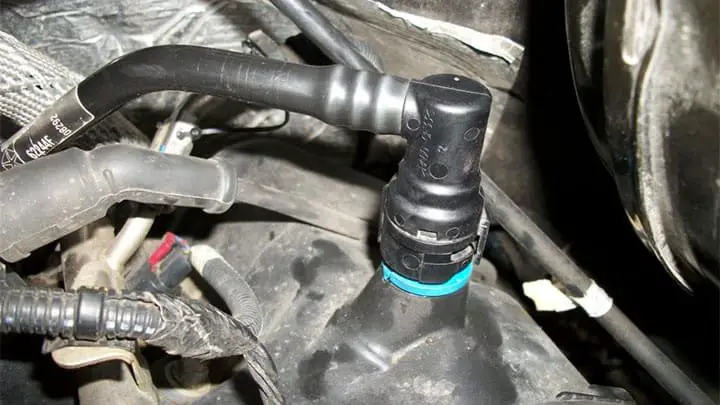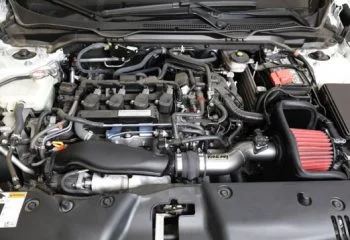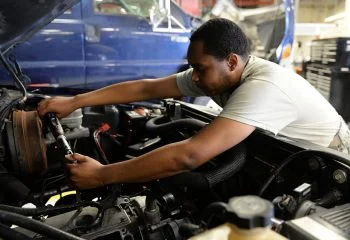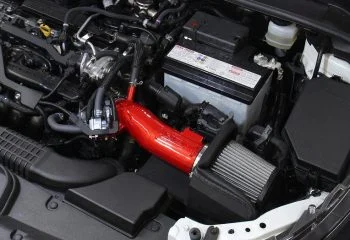If you’re the kind of person who likes to take care of their car, then you know that there are a lot of little things that need to be checked on a regular basis. One of those things is the PCV valve. Most people don’t even know what it is, but it’s an important part of your car’s system and needs to be in good condition.
PCV valves play an important role in keeping a car’s engine running smoothly. But when they start to wear out, they can cause all sorts of problems. They can start to burn oil, which can lead to major engine problems down the road. If your PCV valve is faulty, it may cause your car to burn up to 10% of the oil it consumes.
In this post, we’ll explain what a PCV valve is, how much oil can a bad PCV valve burn and how to tell if it’s faulty. We’ll also show you how to fix a bad PCV valve yourself. So if you’re experiencing oil burn, don’t wait – take a look at your PCV valve today!
What's in this post?
How much oil can a bad PCV valve burn?
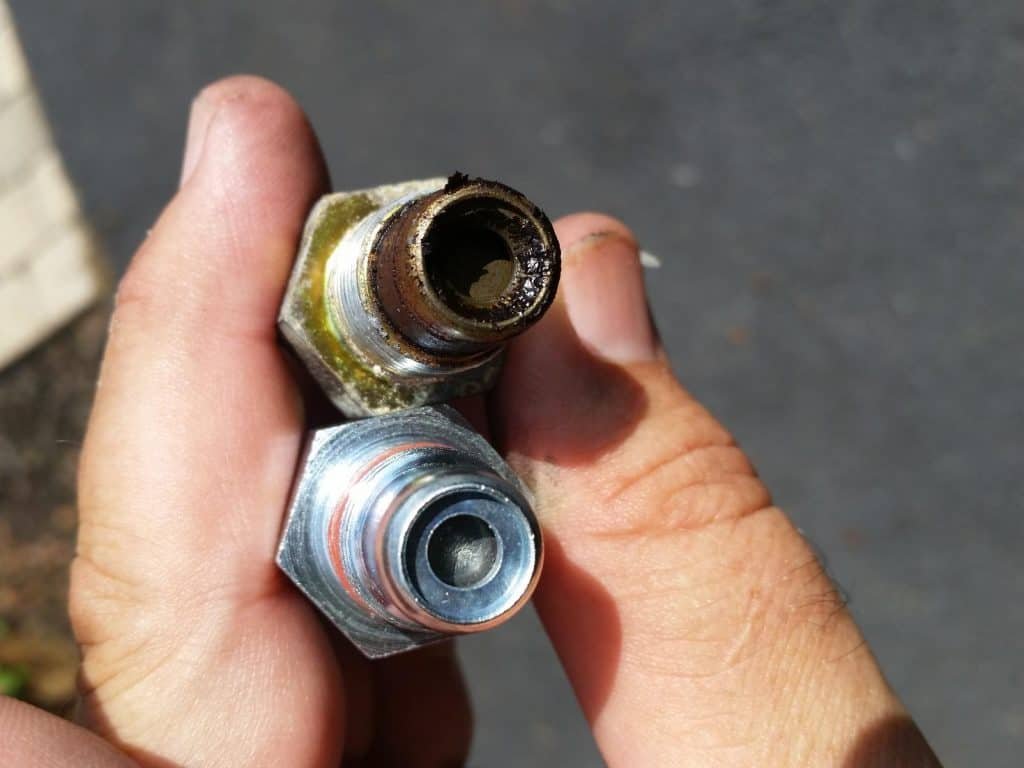
A bad PCV valve can cause your car to burn up to 10% of the oil it consumes. If you’re noticing that your car is burning through oil faster than normal, it’s possible that the PCV valve is to blame.
The PCV valve is responsible for circulating fresh air through the engine and preventing oil from becoming contaminated. Over time, the valve can become clogged or damaged, which can lead to oil burning more quickly.
In some cases, a bad PCV valve may also cause your car to produce blue smoke from the exhaust. If you suspect that your PCV valve is failing, it’s important to have it repaired or replaced as soon as possible to prevent further damage to your engine.
Useful read: 6.0 Powerstroke High Pressure Oil pump Symptoms
How do you fix a bad PCV valve?
A bad PCV valve can cause a number of problems in your car, including increased oil consumption and decreased fuel efficiency. If you suspect that your PCV valve is bad, there are a few ways to test it.
One way is to remove the valve and shake it. If you hear a rattling sound, that indicates that the valve is loose and needs to be replaced.
Another way to test the valve is to start the engine and let it idle for a few minutes. Then, turn off the engine and remove the oil dipstick. If there is an excessive amount of blow-by (oil on the dipstick), that indicates that the PCV valve is not functioning properly and needs to be replaced.
Finally, you can also check the vacuum hose connected to the PCV valve. If it is collapsed or damaged, that means the valve is not working correctly and needs to be replaced.
How much does it cost to replace a PCV valve?
The average cost to replace a PCV valve is between $70 and $100. The labor costs will be between $50 and $70, and the part will cost between $20 and $30. The total cost will depend on the make and model of the vehicle, the complexity of the job, and the experience of the mechanic.
Many mechanics will recommend replacing the PCV valve every 30,000 miles to prevent engine damage. However, some vehicles may not need to have the valve replaced until they reach 100,000 miles.
Consult your owner’s manual or a qualified mechanic to determine when your car needs to have its PCV valve replaced.
Useful read: 5.3 Oil Pickup Tube O-Ring Symptoms
What is a PCV valve?
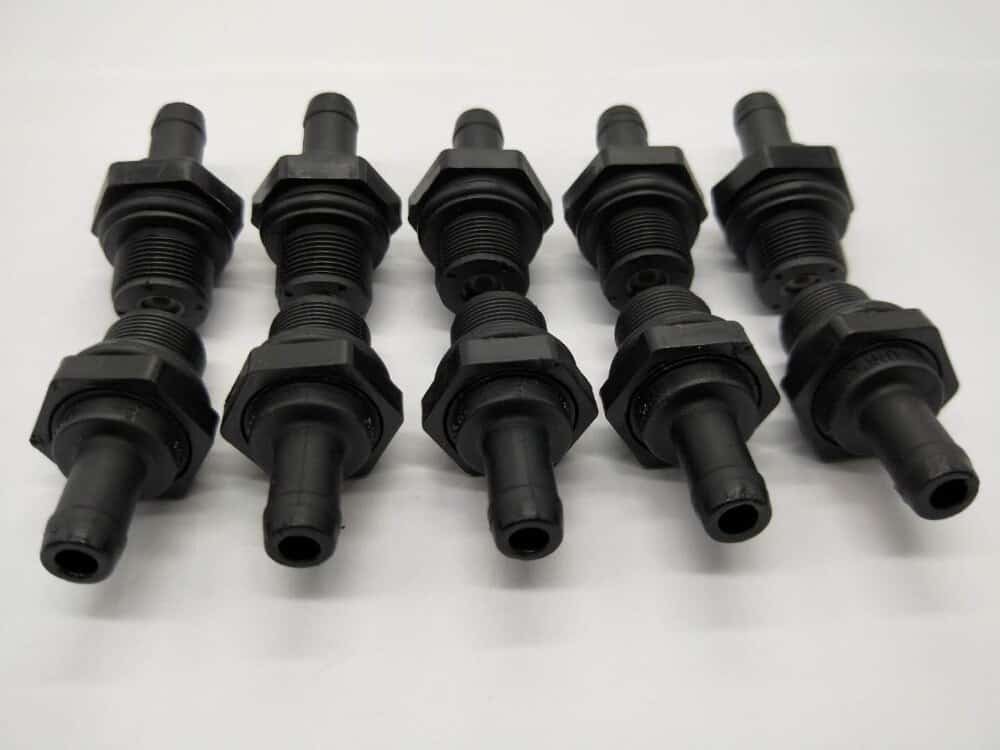
A PCV valve is a positive crankcase ventilation valve. The primary purpose of the PCV valve is to circulate the gases from the crankcase back into the engine intake so that they can be burned rather than vented to the atmosphere.
This function helps to reduce pollution and also improves the efficiency of the engine by ensuring that all of the fuel is being burned. The PCV valve is typically located near the top of the engine and is connected to a tube that runs down to the crankcase.
The PCV valve is usually controlled by a vacuum, and it opens and closes as needed to regulate the flow of gases. In some cases, the PCV valve may become clogged or damaged, which can cause problems with engine performance. As a result, it is important to regularly check the condition of the PCV valve and replace it if necessary.
What is the PCV valve do?
The PCV valve is an important part of the engine’s ventilation system. It is designed to regulate the number of blow-by gases that are recirculated back into the engine. Blow-by gases are created when the piston rings seal against the cylinder wall during the compression stroke and prevent all of the combustion gases from exiting through the exhaust valve.
These gases contain oil vapors, water vapor, and unburned fuel. The PCV valve allows a small amount of these gases to be recirculated back into the engine so that they can be burned during the next combustion cycle. This helps to prevent the build-up of dangerous vapors within the engine, and it also helps to improve engine performance. In order for the PCV valve to function properly, it must be clean and free from debris.
Sign of a bad PCV valve
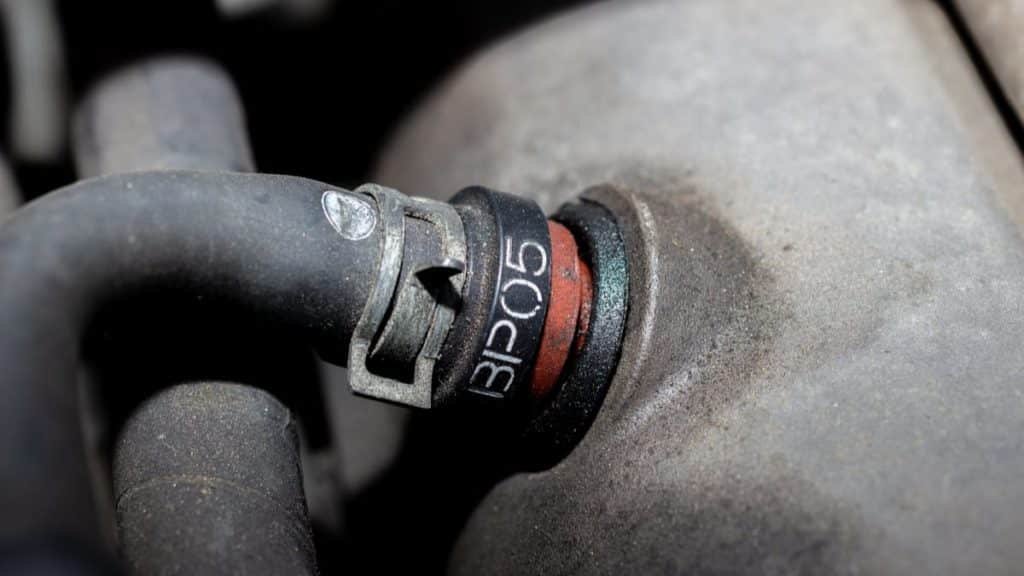
The positive crankcase ventilation (PCV) system is designed to remove any fumes or vapors that may escape from the crankcase. The PCV valve is a key component of this system, and it is responsible for regulating the flow of air in and out of the crankcase.
When the PCV valve becomes clogged or damaged, it can cause a range of problems. Some of the most common symptoms of a bad PCV valve include:
Reduced engine power
The PCV valve is responsible for regulating the amount of pressure in the crankcase, and when it fails, the pressure can build up to the point where it starts to restrict airflow. This reduced airflow can cause a number of problems, including reduced power and efficiency, increased fuel consumption, and increased emissions.
In some cases, a bad PCV valve can also cause engine damage. If you suspect that your PCV valve is to blame for your reduced engine power, it’s important to have it checked out by a qualified technician as soon as possible.
Increased fuel consumption
A bad PCV valve can cause increased fuel consumption for a number of reasons.
- It can allow unburned fuel to enter the engine, which will then be burned and wasted.
- It can cause the engine to run leaner than usual, which means that more fuel will be needed to maintain the same power output.
- Finally, a bad PCV valve can cause the engine to misfire, which will also lead to increased fuel consumption.
In short, a bad PCV valve can have a significant impact on your vehicle’s fuel economy. If you suspect that your PCV valve is faulty, it is important to have it checked and replaced as soon as possible.
Rough idling
A bad or failing PCV valve can cause a number of symptoms for your vehicle, including a decrease in performance and fuel economy, as well as cylinder misfires and a rough idle.
If the valve is not working properly, these gases will build up in the crankcase and cause an increase in pressure. This can lead to a number of issues, including oil leaks, decreased performance, and cylinder misfires.
Additionally, a stuck PCV valve can cause a rough idle as the engine struggles to compensate for the increased pressure. As a result, it is important to have a functioning PCV valve in order to maintain your vehicle’s performance and avoid potential damage to the engine.
Stalling
A bad PCV valve can lead to stalling for a number of reasons. First, the PCV valve helps to regulate the pressure in the engine by allowing air to flow out of the engine. If the valve is not working properly, the engine can become overpressurized, which can cause stalling.
Additionally, the PCV valve helps to remove oil and water vapor from the engine. If the valve is not working properly, these liquids can build up in the engine and cause stalling.
Finally, the PCV valve helps to circulate air in the engine. If the valve is not working properly, the engine can become starved for air, which can also cause stalling. In short, a bad PCV valve can cause stalling for a variety of reasons.
Oil leaks
When an engine is running, the pistons pump up and down and the crankshaft spins around. This motion creates a vacuum in the crankcase, and the PCV (positive crankcase ventilation) valve is there to prevent pressure build-up by allowing air to flow into the engine.
The PCV Valve is a one-way valve that only allows air to flow in, not out. If the PCV valve is defective, it can cause oil leaks. The most common symptom of a bad PCV valve is an oil leak.
If you notice oil leaking from your engine, it’s important to get it checked out as soon as possible. A bad PCV valve can also cause your engine to run rough or stall. So if you notice any of these symptoms, don’t hesitate to take your car to a mechanic for a diagnosis.
If you notice any of these symptoms, it is important to have your vehicle diagnosed by a professional as soon as possible. A bad PCV valve can lead to serious engine damage if it is not repaired in a timely manner.
Useful read: What Are Bad Oil Pump Symptoms And Replacement Cost
FAQs
Will a bad PCV valve throw a code?
A bad PCV valve will not necessarily throw a code. However, it can lead to a number of engine problems, including decreased fuel economy, increased oil consumption, and increased emissions.
In some cases, a bad PCV valve can also cause stalling and rough idling. If you suspect that your PCV valve is malfunctioning, it’s important to have it checked by a qualified mechanic as soon as possible. Failure to do so could result in serious engine damage.
Can PCV valve be cleaned?
Yes. The good news is that this is a relatively simple process that can be done at home with a few basic tools.
- First, locate the PCV valve and unscrew it from the engine.
- Next, use a wire brush or similar tool to clean any debris or buildup from the valve itself.
- Once the valve is clean, simply screw it back into place and start the engine to check that it is working properly.
If necessary, repeat the cleaning process until the PCV valve is functioning correctly. By keeping the PCV valve clean, you can help to prolong the life of your engine and avoid potential damage.
Can you drive a car without a PCV valve?
While it’s possible to drive a short distance without one, it’s not advisable. Eventually, the lack of ventilation will cause serious damage to your engine. Therefore, it’s best to replace a missing or faulty PCV valve as soon as possible.
Can I drive with broken PCV valve?
No, you should not drive with a broken PCV valve. The PCV valve plays an important role in the engine’s ability to properly ventilate itself. When the engine is running, it produces harmful gases that need to be released. The PCV valve allows these gases to escape, while also keeping fresh air moving into the engine.
If the valve is broken, the engine will not be able to properly ventilate itself and may overheat. In addition, the broken valve can cause oil leaks and other engine damage. For these reasons, it’s best to have a broken PCV valve fixed before driving your vehicle.
Can PCV cause low oil pressure?
There are a variety of factors that can cause low oil pressure in an engine, and one of them is a faulty PCV valve. The PCV valve is responsible for recirculating blow-by gases back into the combustion chamber, and it also helps to regulate the amount of oil that flows through the engine.
If the PCV valve is not functioning properly, it can restrict the flow of oil, leading to low oil pressure. In some cases, the PCV valve can become clogged with oil and debris, preventing it from opening and closing properly. If you suspect that your PCV valve is causing low oil pressure, it is important to have it inspected by a qualified mechanic.
Will check engine light come on for bad PCV valve?
The answer, unfortunately, is a bit complicated. In short, it depends on the severity of the problem and how long the PCV valve has been failing. In most cases, a bad PCV valve will cause an oil leak. If the oil leak is severe enough, it can trigger the check engine light.
However, if the oil leak is small and gradual, it may not trigger the check engine light until the problem gets worse. Ultimately, it’s important to have any oil leaks checked out by a professional as soon as possible, regardless of whether or not the check engine light is on.
What happens if a PCV valve is stuck open?
If the PCV valve becomes stuck open, it can cause a number of problems. The most immediate issue is a large vacuum leak. This can lead to a rough idle and decreased performance as the engine is not able to function properly.
In addition, the car may start to surge or stall when driving. If you experience any of these problems, it is important to take your car to a mechanic so that they can fix the issue. Otherwise, you run the risk of damaging your engine.
Is PCV valve open at idle?
The positive crankcase ventilation (PCV) valve is a one-way valve that allows blow-by gases to escape from the crankcase. When the engine is running, the pressure in the crankcase is higher than atmospheric pressure, so the PCV valve is forced open. This allows gases to flow from the crankcase, through the PCV valve, and into the intake manifold where they can be burned in the engine.
At idle, the engine is not producing enough power to maintain this pressure difference, so the PCV valve will be closed. As a result, no blow-by gases will escape from the crankcase at idle. However, the PCV system is still working to remove these gases when the engine is running at higher speeds.
Can a PCV valve cause rough idle when warm?
Yes. The PCV valve is responsible for regulating the amount of crankcase pressure, and when it isn’t working properly, that pressure can build up and cause the engine to run Rough.
In addition, a clogged PCV valve can also restrict airflow and cause the engine to run lean, which can also lead to a rough idle. If you suspect that your PCV valve is the cause of your rough idle, have it checked by a qualified mechanic as soon as possible.

